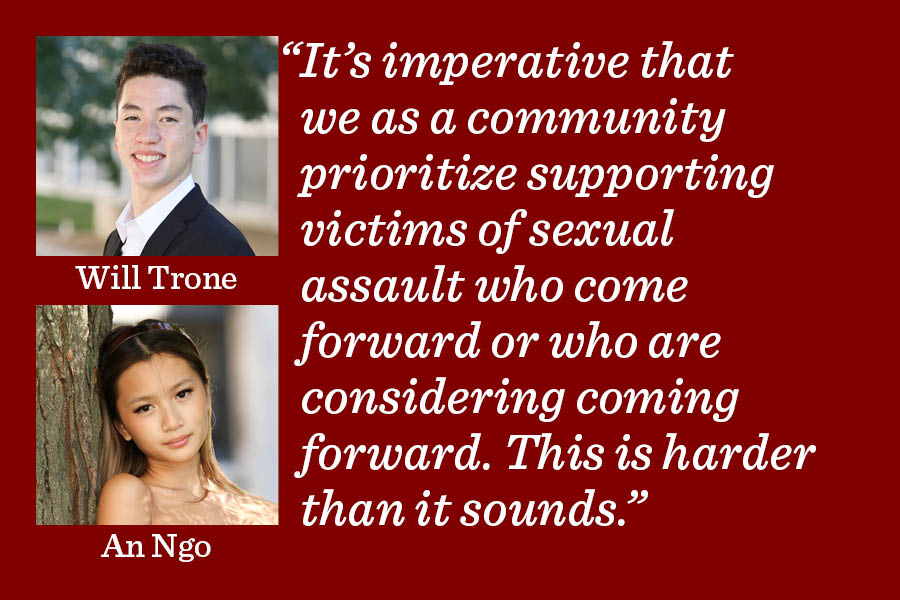Support and listen to sexual assault victims
Midway Staff
Sexual assault is a real and recurring phenomenon that needs to be faced directly rather than brushed aside, write An Ngo and Will Trone.
March 1, 2022
Update: This story was updated on March 7, 2022.
Every time a victim at our school makes an allegation of sexual assault against someone, there’s reinvigorated fear about fake allegations, both for the specific case at hand and for sexual assault allegations generally. Yet this narrative of fake allegations is overblown and denies the experiences of sexual assault survivors at U-High and allows perpetrators to get away with their actions.
In reality, sexual assault is under-reported, not over-reported. According to the Rape, Abuse & Incest National Network, two-thirds of sexual assaults go unreported. Further, studies have demonstrated that false allegations are in the minority, only making up 2% to 10% of sexual assault reports. In fact, research shows that most rates of false reporting are usually exaggerated due to inconsistencies with definitions and protocol as well as an inadequate understanding of sexual assault. To assume that every allegation fits into the 2%-10% is against common sense and can often harm the person alleging the assault. And further, this culture of disbelief only makes it more difficult for survivors to come forward.
Lab is no deviation from this trend of sexual assault and disbelief. As much as the school community may act otherwise, sexual assault is present at Lab. According to the 2021 Student Wellness Survey Results, 4% of high school respondents reported that they were “forced to do sexual things” in the last year. While this may appear to be a small proportion of the student body, this statistic means that of the 523 respondents in the high school, about 21 students were sexually assaulted in the past year. In the context of sexual assault, this is not a small number.
When coming forward, victims of sexual assault at Lab face doubt, fear of retaliation and a lack of options; they are climbing an arduous uphill battle. They face excuses like “They’re just being dramatic” or “They just want attention” and overall distrust. Yet, assuming that national statistics apply, the vast majority of allegations at Lab would be truthful, and it is time the community starts acting like it.
Lab is a small community. The reason so many of us are hesitant to doubt victims is that oftentimes it’s our own friends or peers who have committed wrongdoing. Many of us have heard stories of sexual assault and harassment that was perpetrated by our peers. Yet very few, if any, of these stories include any type of accountability for the perpetrators.
It’s imperative that we as a community prioritize supporting victims of sexual assault who come forward or who are considering coming forward. This is harder than it sounds. It means dissecting and rejecting the ways in which rape culture and the trivialization of sexual assault have infiltrated aspects of our daily lives. We must educate ourselves, dissasociate from those who commit acts of sexual abuse and, most importantly, believe survivors.





























































BLOPEZ • Mar 2, 2022 at 10:18 am
Victims are bullied by peers if the alleged perpetrator is considered a “popular” person at school.